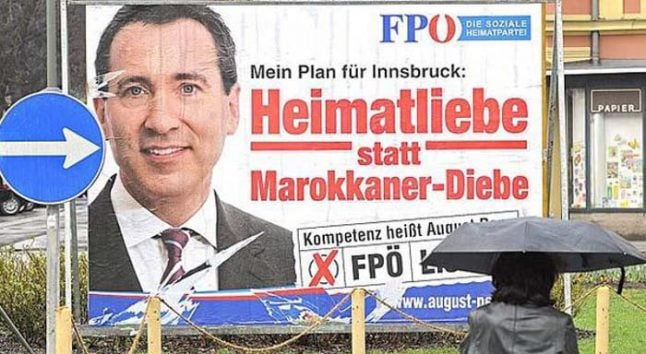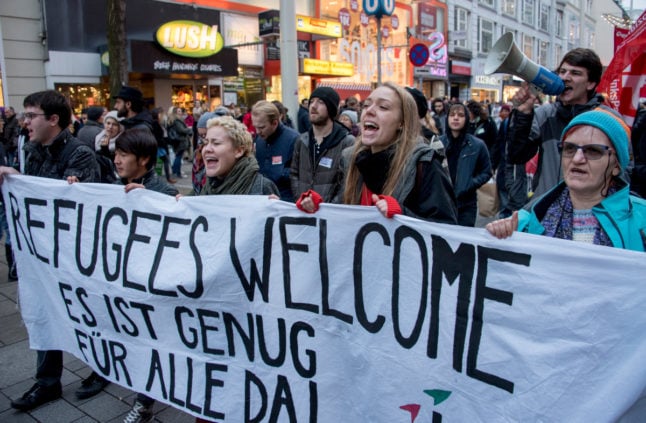Two years ago hotelier and politician August Penz was made responsible for several dozen posters proclaiming "Love for Homeland instead of Moroccan Thieves" (which rhymes in German), and sentenced to a fine of €14,400 (of which he only needed to pay half) by an Innsbruck court.
Penz pleaded not guilty from the start, saying that it had not been his intention to insult all Moroccans. He was only talking about criminals and the security situation in Innsbruck, said the hotel owner.
The public prosecution said that the poster was deeply insulting to Moroccans and appealed against the verdict.
Hermann Holzmann, Penz's lawyer, said that his client was "happy" that the trial finally "came to an end". He said that the judge had clearly communicated that Penz never had intended to insult all Moroccans and just wanted to focus on a problem in Innsbruck.
In April 2012, the posters caused an international incident with Morocco. The Austrian ambassador in Morocco was summoned to the foreign ministry in Rabat to hear the "outrage of the kingdom about this xenophobic act".
It was by no means the first incident of racist and anti-Islamic slogans by FPÖ organizations.
In January 2008, the FPÖ candidate for Graz city elections, Susanne Winter, attacked Islam and insulted the Prophet Mohammed as having "married a six-year-old girl" which "in today's system would make him a child abuser".
Islam should be "thrown back where it comes from, behind the Mediterranean," she said.
In the 2005 Vienna city election campaign, the FPÖ used slogans such as "Free Women – Instead of Obligatory Headscarves", "German – Or 'Don't Understand' ", "Homeland Instead of Turk-EU", and "Let's Stay Masters in our own House".



 Please whitelist us to continue reading.
Please whitelist us to continue reading.
Member comments